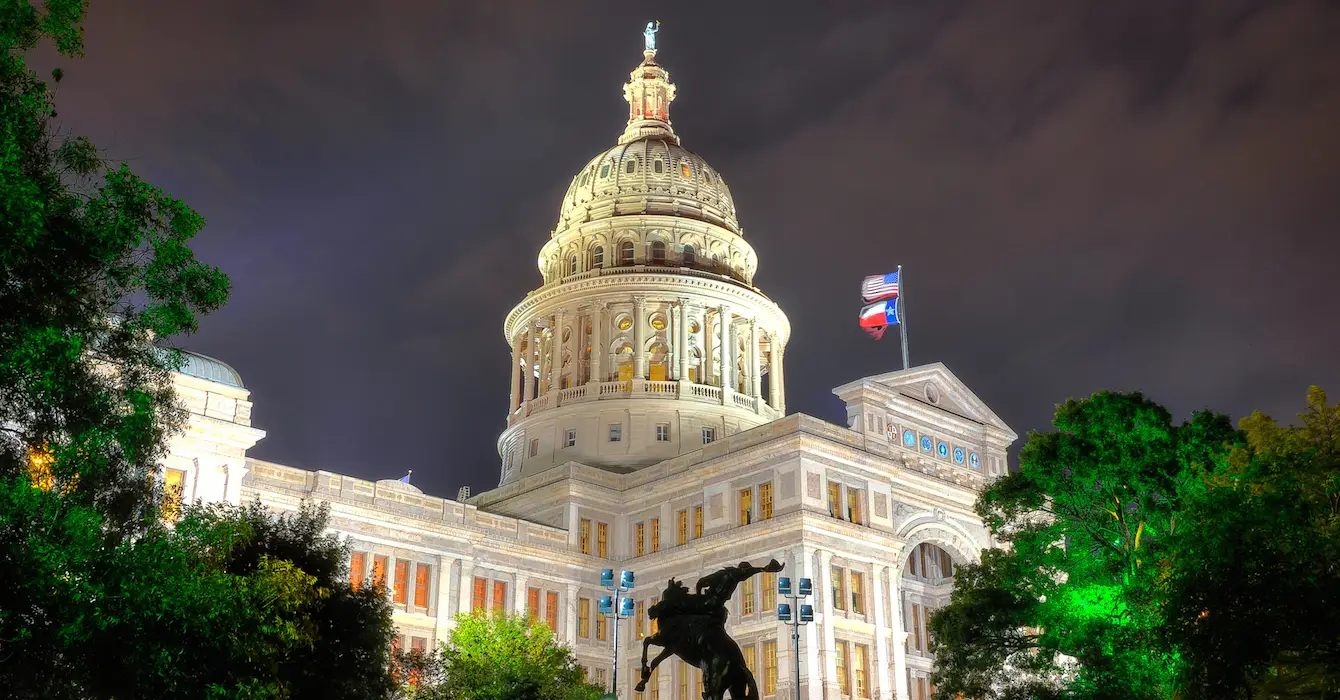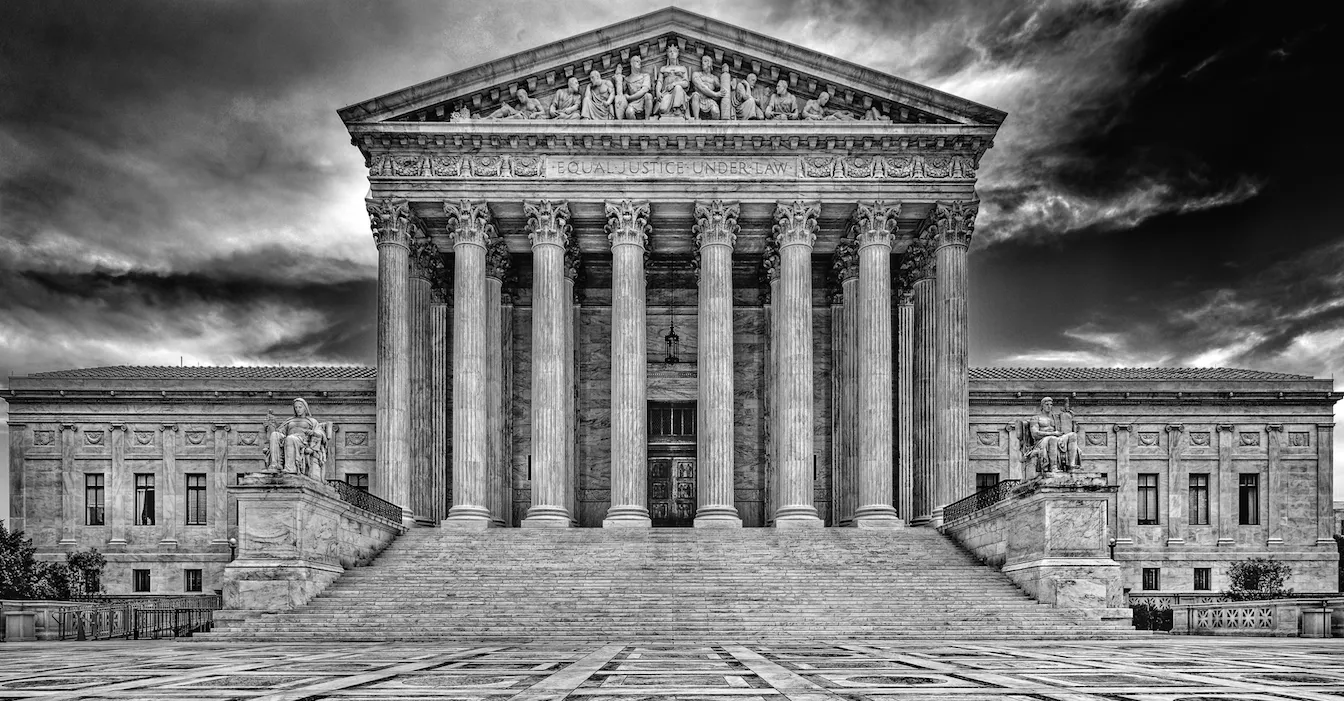The Biden administration asked the Supreme Court on Monday to block a Texas law sharply curtailing abortions, reminding justices who declined to do so previously that the statute is designed to thwart the court’s own authority.
Senate Bill 8, as the legislation is known, bans termination of pregnancies in the country’s second most-populous state as soon as a fetal heartbeat is detectable.
That happens as early as six weeks, well before a fetus can survive outside the womb. Before that point, known as viability and occurring around 24 weeks, women have a constitutional right to terminate their pregnancies, the high court has maintained in rulings dating to Roe v. Wade in 1973.
“The fundamental question in this case is whether states may nullify disfavored constitutional rights by purporting to disclaim their own enforcement of unconstitutional laws to private bounty hunters,” Solicitor General Brian Fletcher wrote in a filing with the high court. “S.B. 8’s use of that scheme has already allowed Texas to nullify this court’s precedents for six weeks. That state of affairs should not be allowed to persist – or spread to other states.”
Rather than relying on state officials for enforcement, as laws previously struck down have done, S.B. 8 deputizes private citizens to file suit against anyone who provides an abortion or helps a woman obtain one after a fetal heartbeat is detected, authorizing awards of at least $10,000 in each successful case.
Its framers have boasted that the measure was designed to frustrate judicial review, and abortion-rights opponents in other states have begun to regard it as a model for their own laws, emboldened by the Supreme Court’s refusal to block it before it took effect in September.
That decision, made by five of the six conservative justices who make up a lopsided majority on the court, came in a suit filed by abortion clinics.
While noting “serious” constitutional questions, the justices said they were hampered by procedural questions, mainly whether the clinics had identified the correct parties to target in an injunction.
The clinics had sought to enjoin state judges who would decide the enforcement suits, something justices said it was unclear they had the power to do.
The Justice Department, which subsequently sued the state, attacks the matter from a different angle, arguing that the federal government has the authority to seek equitable relief to safeguard the supremacy of federal law – as stated in the Constitution – as well as the availability of judicial review procedures long backed by Congress and the Supreme Court itself.

Framers of a fetal-heartbeat abortion in Texas have boasted that it was designed to frustrate judicial review.
Earlier in October, the government persuaded U.S. District Judge Robert Pittman in Austin to issue an injunction blocking the law while the case proceeded, but Texas promptly won a stay of that order from the 5th Circuit Court of Appeals in New Orleans.
DOJ spokesman Anthony Coley said Saturday that the department would appeal that decision.
The 5th Circuit stay, approved by two members of a three-judge panel, didn’t detail its reasons beyond an oblique reference to those offered in a separate matter: the abortion clinics’ original suit, in which the 5th Circuit also let the Texas law stand.
Those grounds – that state executives couldn’t be enjoined since they weren’t enforcing the law and that state judges and clerks couldn’t properly be sued – don’t apply in the government’s case brought against Texas itself, Fletcher argued in the Supreme Court filing.
“In ratifying the Constitution, the states consented to suits brought” by the federal government, he wrote.
“The district court thus correctly held that Texas’ sovereign immunity poses no bar to this suit,” Fletcher continued, “and because the United States can sue the state directly, this case likewise poses no question about which particular Texas officials would be proper defendants.”
Since the 5th Circuit provided no other grounds for its stay, that alone would offer sufficient reason for vacating it, he argued. But there are others, including that the district court’s injunction was appropriate.
“S.B. 8 is a statute enacted by the Texas legislature, signed by the Texas governor and enforceable in Texas courts,” Fletcher wrote. “If Texas had not enacted S.B. 8, no private plaintiff could maintain the cause of action that it creates. And no plaintiff could maintain an S.B. 8 cause of action or recover the statutory damages it authorizes without action by the Texas courts.”
'Texas is responsible'
Those conditions make it “plain that Texas is responsible for the constitutional violations caused by S.B. 8.,” he argued. “It should be equally plain that where, as here, the state’s sovereign immunity does not apply, Texas can be enjoined to prevent those violations.”
The only remaining question, he says, is which state actors should be covered by the injunction and what conduct, specifically, should be barred.
Still, “having chosen a supremely unusual means of enforcing its unconstitutional law, Texas should bear the obligation to identify an alternative form of injunctive relief if it is dissatisfied with the particular mechanism adopted by the district court,” Fletcher asserted.
Texas hasn’t yet responded to the government’s Supreme Court filing, but state Attorney General Ken Paxton – who said Thursday that the 5th Circuit’s stay showed that the state is “on the right side of the law and life” – has promised to keep fighting what he calls “federal overreach” in the state.


